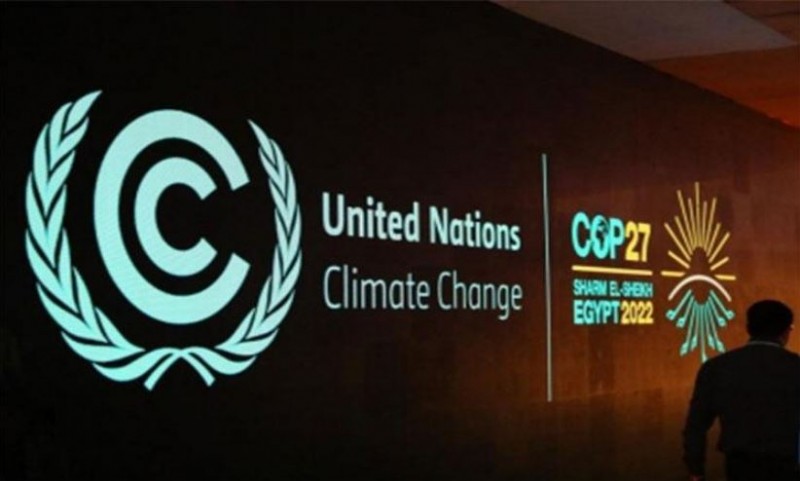
NEW DELHI: Bhupender Yadav, the minister of environment and forests, emphasised on Thursday the necessity of monitoring emission levels, which he claimed was essential for starting climate change.
"Today, we recognise that among all environmental issues, climate change is the most pressing. Success with other environmental concerns won't have permanent significance without limiting cumulative emissions, even if it is" he pointed out. At a seminar on infrastructure in small island developing states (SIDS) that was held at the UNFCCC Pavilion in conjunction with COP27, Yadav made this statement.

"In our ongoing effort to defend the earth that supports humanity, we shall combat all global environmental issues. However, global warming also serves as a warning that success depends on equity and global cooperation, where those who are most privileged must take the lead. This trip cannot be taken by one country alone. Correct knowledge, correct reasoning, and cooperative action are what will determine our course for the ensuing 50 years " he emphasised. The minister said, India is dedicated to both domestic and international action on climate change.
Along with Yadav, other attendees were the government of Jamaica's Senator Matthew Samuda, the ministry of economic growth and job creation's Kavydass Ramano, and representatives from AOSIS and Fiji. Yadav served as the session's moderator.
Yadav explained to the group, citing the IPCC's AR6 reports, that the contribution to cumulative CO2 emissions is precisely proportional to the cause of warming. Whenever they occur, CO2 emissions all contribute equally to global warming "The PCC reports and every other piece of the best available science also demonstrate India's great sensitivity to climate change. Thus, we have a great deal of sympathy for the island states' and other people's circumstances. India is also a very susceptible country on the global scale, with over 7,500 kilometres of coastline, more than 1,000 islands in the nearby seas, and a sizable coastal population relying on the sea for lives and livelihoods. For instance, India reported 1,058 climate crisis incidents between 1995 and 2020 " he said.
The minister added that India's emissions still account for around one-third of the global average when measured in terms of per capita emissions for an objective scale of comparison. The greatest available science indicates that there would be no climate disaster if global emissions were to be equal to those of India per capita.
Prime Minister Narendra Modi introduced the Coalition for Disaster Resilient Infrastructure (CDRI) in September 2019 in New York. In order to support sustainable development, it strives to increase the ability of both new and existing infrastructure systems to withstand climate change and disaster hazards.
Saudi Arabia: Country will host MENA climate week in 2023
COP27: US requests for China to pay for jeopardising climate cooperation
Challenges for India as G20 President: Debt distress, climate action